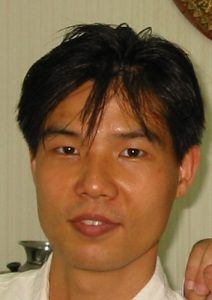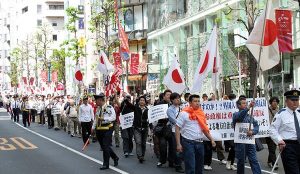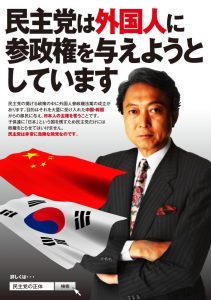Memo #145
By Naoto Higuchi– higuchinaoto [at] yahoo.co.jp
 Over 500,000 Koreans, many who were born and raised in Japan, have become disheartened since Japan’s historic change of government in 2009. In March 2010, the Japanese government failed to submit the long-awaited bill to give voting rights to permanent resident foreigners. Enfranchisement is a major political issue in Japan and the political rights of permanent resident foreigners are ignored.
Over 500,000 Koreans, many who were born and raised in Japan, have become disheartened since Japan’s historic change of government in 2009. In March 2010, the Japanese government failed to submit the long-awaited bill to give voting rights to permanent resident foreigners. Enfranchisement is a major political issue in Japan and the political rights of permanent resident foreigners are ignored.
In 1998 the former ruling coalition agreed to enact the “foreigners” enfranchisement bill. But opponents within the Liberal Democratic Party (LDP) delayed this for a decade. Many Koreans put out the welcome mat for the Democratic Party of Japan (DPJ) in 2009. Former Prime Minister Yukio Hatoyama and the DPJ’s secretary general, Ichiro Ozawa, tried to fulfill these expectations. But opposition inside and outside the ruling coalition influenced them to give up the bill, despite their overwhelming majority in the lower house.
Permanent resident foreigners’ suffrage has been far from politically important in other countries, but is a major political issue in Japan. LDP members strongly oppose permanent resident foreigners’ suffrage, regarding it as subversive to national sovereignty. It was a symbolic issue for the LDP to blame the DPJ as “lefty”. Further, nationalist groups mobilized 10,000 people for an anti-suffrage gathering. Fledgling far-right groups also demonstrated against it across the country.
During the anti-suffrage campaign, opponents emphasized risks. They articulated unfounded fear and rumour that caused many Diet members to withdraw support. For example, they mentioned that Korean and Chinese residents would move in great numbers to border islands to get their “puppets” elected, paving the way for invasion by South Korea and China.
Strong opposition against permanent resident foreigners’ suffrage lies to a significant degree in East Asian geo-politics where cold war is not over and Japan has not settled its imperial past. Issues such as compensation for Korean comfort women (juugun ianfu) during World War II and the border dispute over Senkaku islands heightened opposition against enfranchisement.
Japan seems unable to reckon with its imperial history that kept former colonial citizens from fully participating in Japanese society and politics. The political rights of Koreans, many who are fifth generation immigrants, are ignored because of fear of political backlash.
About the Author:
Higuchi Naoto – Associate Professor of Sociology at the University of Tokushima.
Links:
- Zainichi (Koreans in Japan): Diasporic Nationalism and Postcolonial Identity, University of California Press, 2008.
- Voting Rights of the ‘Marginal’: The Contested Logic of Political Membership in Japan, Ethnopolitics: Formerly Global Review of Ethnopolitics, September 2008.
- Foreigner suffrage opponents rally, The Japan Times Online, April 2010.
- Demonstration of radical right groups again enfranchisement, September 2009 (in Japanese, video).
- Japan may grant foreigners suffrage, Al Jazeera English, February 2010 (video).

